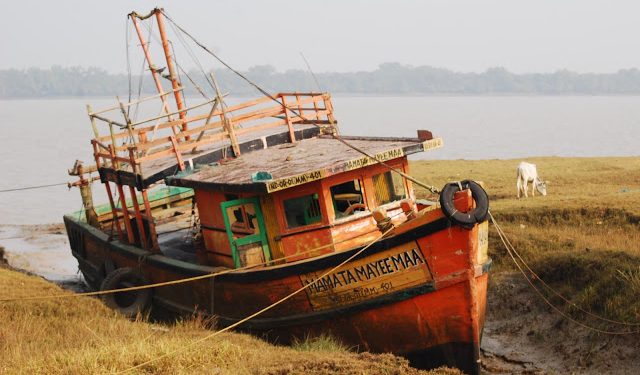The annual fishing ban is in effect along the coast of Odisha to protect olive ridley turtles. The state government, too, is providing assistance to those who earn a livelihood from fishing to see them through this period. However, it appears now that the support provided is inadequate to keep people content, those who are traditionally involved in fishing. The ban imposed each year from November 1 to May 31 along the coastline that forms part of the Gahirmatha Marine Sanctuary — chiefly covering parts of Kendrapara, Ganjam and Puri districts — is being contested by fishermen, if one goes by reports in media. It is not unnatural for fishermen to become restive given that they have to keep away from work for seven months and the five months they have to work is one full of climatic uncertainties that affect their livelihood further. While the ban is bound to help fish populations in the area to revive adequately, it does not give fishermen, who sacrifice their livelihoods, any real returns or chances to advance in their life using the sole skill they have developed. The state government had in 2016 announced financial assistance of Rs 5,000 per person per year to fishermen families whose livelihood is affected by the ban. Earlier, it had launched a programme named Rice for Olive Ridley Conservation (RORC) under which fishermen families were to be given 25 kilograms of rice at the price Re1 a kg. The scheme was covering 8,068 marine fishermen families from coastal villages in Kendrapara, Ganjam and Puri, according to figures quoted by officials. While financial assistance or other sops may help fishermen meet their basic needs and to get on with life during the lean period, one major factor that may be fanning discontent is the lack of gainful alternatives. The manpower that largely idles during the ban, perhaps needs to be utilised more effectively in activities that will add value to coastal ecosystem itself. The authorities concerned are already engaging local fishermen in keeping a watch on olive ridley deaths and also to report on illegal trawling in the reserve, there are several other avenues where their interest can be drawn and coastal ecosystem further improved. The beaches lining the sanctuary are becoming tourist attractions and the state is doing much to attract visitors to nesting spots of olive ridleys. However, there is barely any mechanism at these beaches to control the inflow of refuse. Piecemeal efforts are being taken up to clean the beaches, but more stringent action is required to protect these from the tidal wave of refuse. The protection of olive ridleys cannot be dreamt of without the active involvement of the fisherfolk who reside in the area. Therefore, their involvement in the upkeep of beaches during the lean season is worth considering to further improve the chances of the turtles and in turn the fishermen themselves. Their efforts could also be utilised in expansion of mangrove forests where feasible and in the development of fishing grounds. At present, many fishing hamlets along the coast are in bad shape and squalour is omnipresent. Fisherfolk are constantly facing the wrath of nature and suffering the effects of man-made problems. Their energies could easily be harnessed to address the problems they face and to help them also see progress in life, while cooperating with the necessary ban.
US & Drug Cartels
US President Donald Trump has made drug trafficked into his country a major reason for his policy of forcing illegal...
Read moreDetails





































